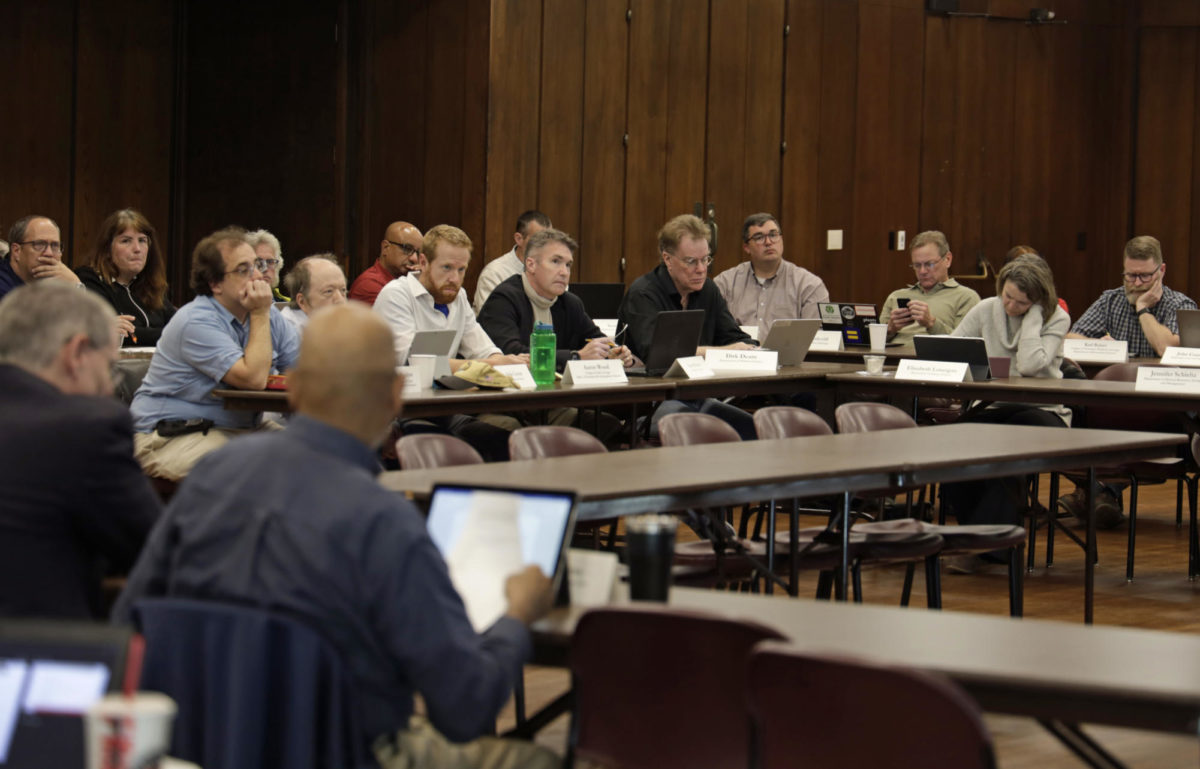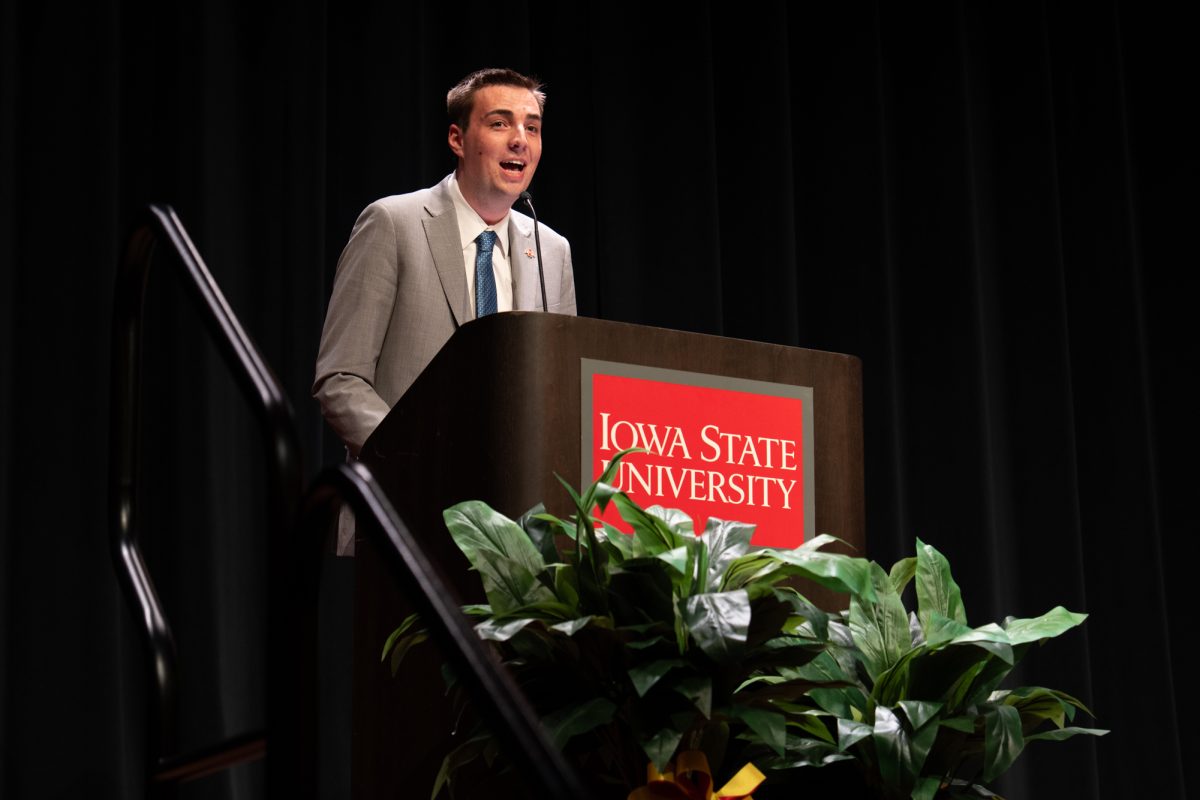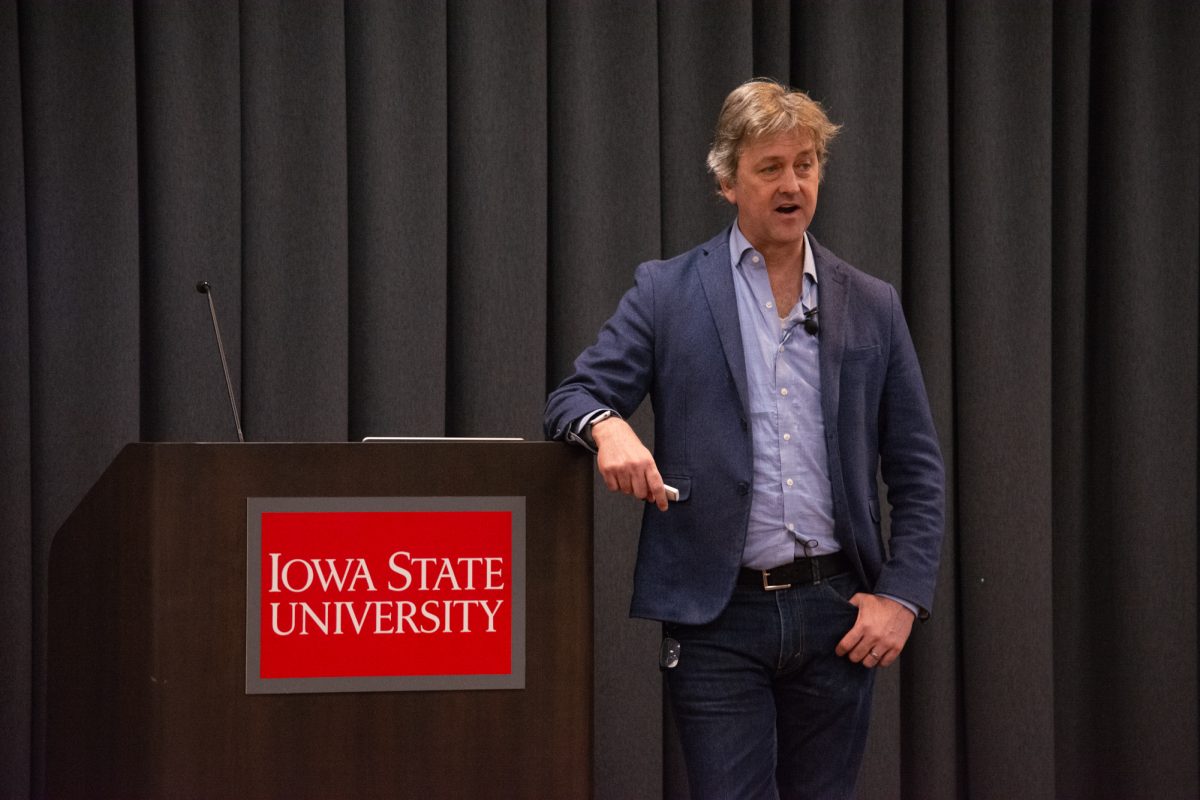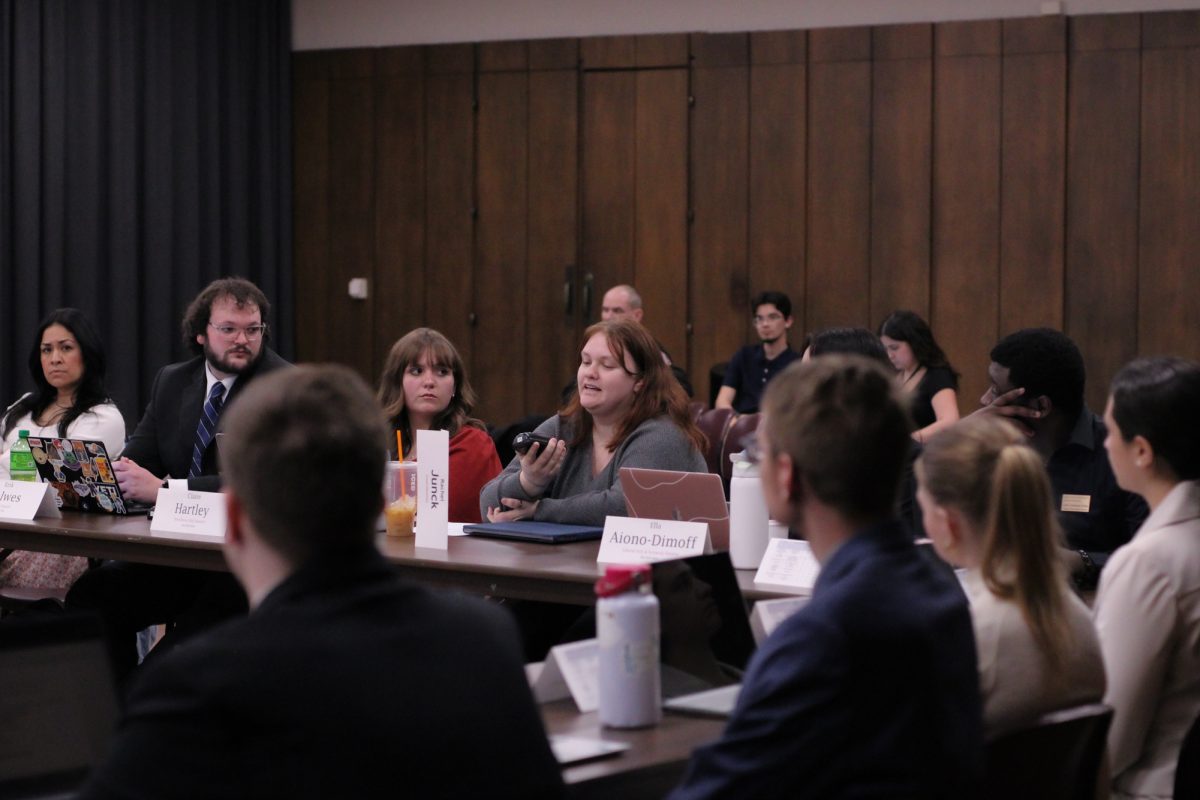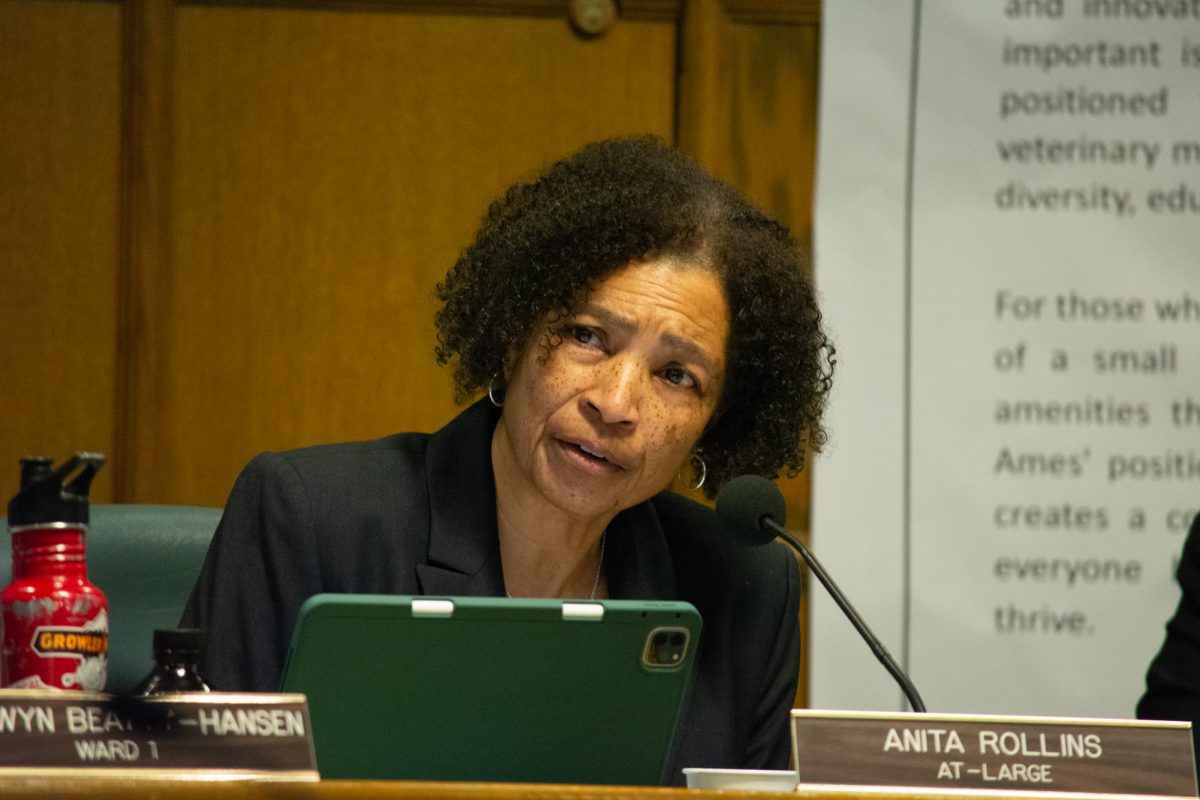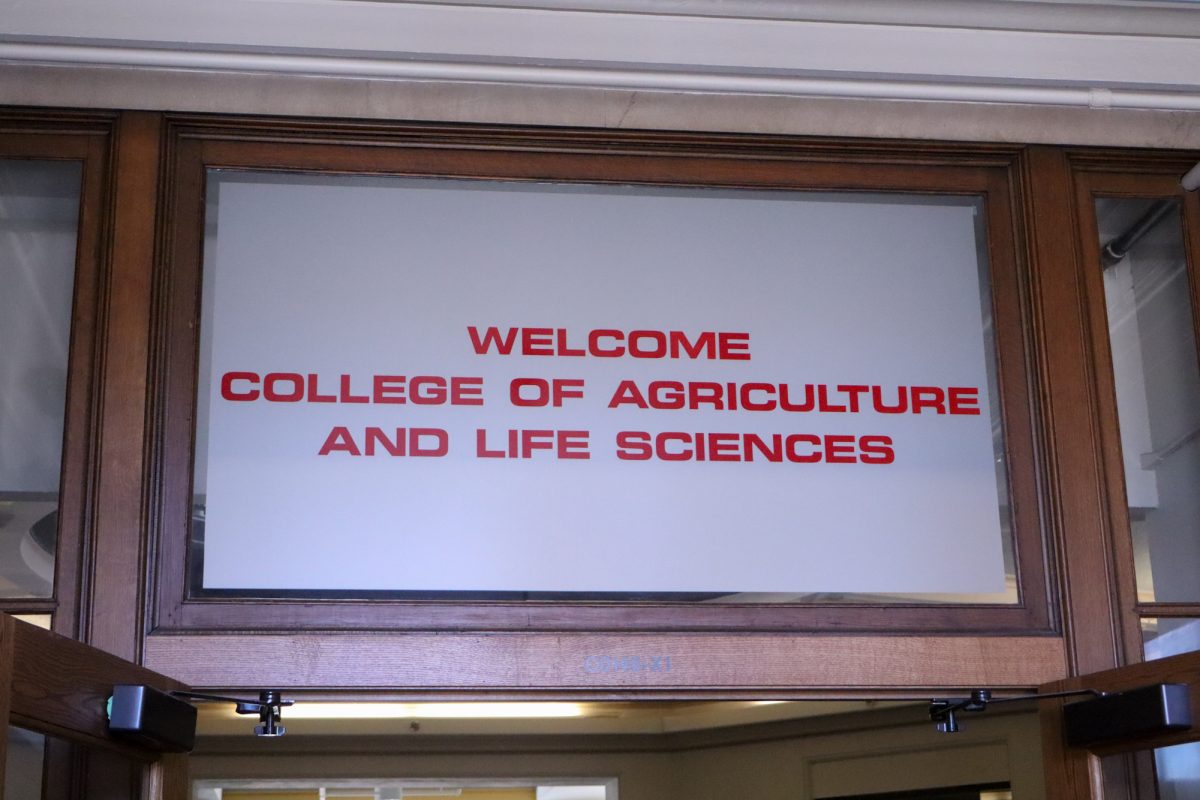Students have new guidelines when repeating a course they have already taken, and current and prospective students may have new degree options as soon as the fall semester.
Catalog policy on repeating courses
Changes to how courses are scored and displayed on transcripts when repeated were made by the Senate.
When a student takes a class again, the most recent grade for a course taken and repeated at Iowa State will be used to calculate cumulative GPA, which could potentially result in a lowered GPA if the most recent grade is lower than the previous, according to senate documents.
Rules have changed for students who take a class at Iowa State, then take the same class at another institution and transfer it in.
Students who complete the same course at a community college as a course they failed at Iowa State can use the community college credit to satisfy graduation requirements. However, the faculty members agreed that the transferred duplicate course can not count toward a student’s GPA or replace the grade earned at Iowa State.
The change also includes that transfer courses repeated at Iowa State do not count toward the 18-credit designated repeat limit.
Applied mathematics minor
The department of mathematics received unanimous approval from the Senate to add an applied mathematics minor.
Although the Department of Mathematics already offers a minor in mathematics, advocates for the addition of applied mathematics argue the new minor offers an opportunity to earn a minor that “better serves their academic and professional goals.”
“There are many students who take a large number of credits in MATH to complete degree requirements in engineering, computer science, physics and other majors,” the proposal to add the major stated. “These students have interests in the more applied and computational aspects of mathematics. The existing minor in mathematics focuses on formal proofs-based mathematics, requiring MATH 201 (Introduction to Proofs) and other proofs-based courses.”
Jennifer Schieltz, associate teaching professor in natural resource ecology and management, addressed the demand for the addition to the Senate.
“The main change here and the sort of rationale is that the current existing minor in mathematics focuses on formal proof-based mathematics, whereas this option we think would be used by students who are more interested in the applied and computational aspects of math rather than proofs,” Schieltz said.
The program awaits approval from the senior vice president and provost and university president.
Sports media and communication
A major that would teach skills in social media listening/data analytics, digital branding, live streaming and play-by-play announcing, in part by leveraging relationships within the athletic department, was unanimously approved by the Faculty Senate.
Sports media and communication, a proposed major with the College of Liberal Arts and Sciences and Greenlee School of Journalism, awaits approval from the senior vice president and provost and university president before heading to the Board of Regents. The program has an estimated start date of the fall 2024 semester.
Greenlee began evaluating demand for the major in 2015 and brought the major up for approval after seeing favorable responses, according to the request to implement document.
Master of digital health
A program to address the intersection of health care, technology and data analytics was approved unanimously by the Faculty Senate.
A master’s program, master of digital health in the College of Human Sciences, is a program with a primary objective of equipping students with specialized knowledge and skills needed to navigate the evolving landscape of digital health, according to the request to implement document.
The proposal included a curriculum that included the objectives of the program and was designed with the digital health program competencies from the Commission on Accreditation for Health Informatics and Information Management Education.
The program awaits approval from the senior vice president and provost and university president before heading to the Board of Regents and has an estimated start date of 2024.
Biological and pre-medical illustration name change
The Senate voted unanimously to change the program currently named biological and pre-medical illustration to scientific illustration and visualization.
“We think this will make this BA clearer to incoming students and represent the diversity of types of visualization,” Schieltz said.
Image of the program among incoming and prospective students was considered in the proposal for the name change, which included that “sci viz” is memorable for students interested in the program.
The name change request cites the major’s expanded sciences and art curriculum to include the physical sciences and new visual media practices and techniques.
The program awaits approval from the senior vice president and provost and university president before heading to the Board of Regents.
Other business
Meghan Gillette, associate teaching professor in human development and family studies, was unanimously approved as the faculty Senate president-elect.
Gillette has served as a senator for human development and family studies for four years and has been the caucus chair for the College of Human Sciences for three years.
Gillette said she is interested in improving faculty life and the faculty experience at Iowa State as Faculty Senate president-elect.
The Senate approved the initiation of a central administrator review of university President Wendy Wintersteen conducted by the Senate.
Sarah Bennett-George, Faculty Senate president, said reviewing offices should happen every three to five years if the office has been stable.
Wintersteen was appointed to the position of president in November 2017.
The Senate has the capacity to conduct a review each year, according to Bennett-George, with each office receiving a review every three to five years. According to Bennett-George, the last review was of the senior vice president and provost in 2018.
Central administrator reviews involve a self-study by the office to be reviewed, a faculty review of the office and its subunits and a faculty review of the administrator’s performance.


